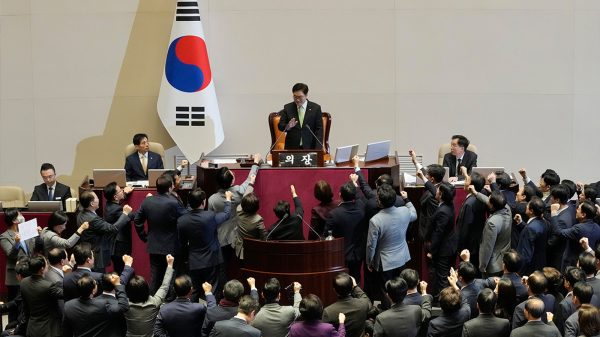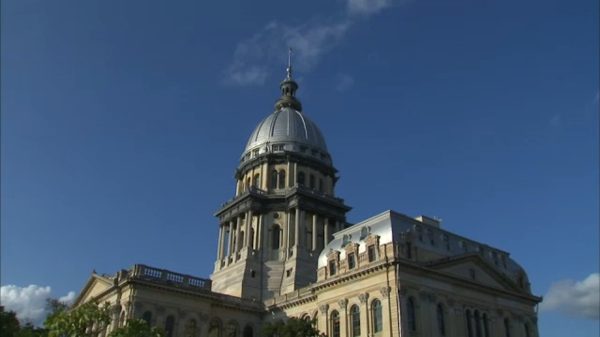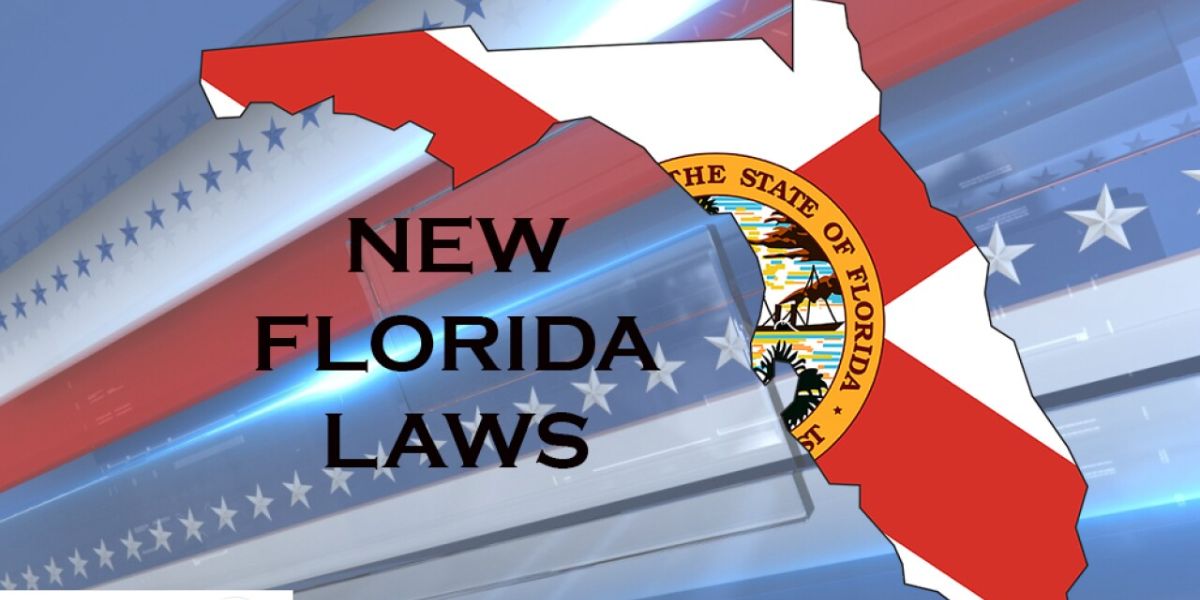WPBN: 9 new Florida laws are scheduled to take effect on January 1, 2025. More than 200 new state laws were passed by Florida lawmakers and Governor Ron DeSantis in 2024; most of them went into effect in July and October.
Nine more from that legislative season, however, which address issues including financial exploitation, first responder safety, and social media bans, will go into force at the beginning of the new year.
A complete list of the new statutes is provided below.
HB 3: Limitations on Children’s Use of Social Media
Although the law permits 14 and 15-year-olds to create social media profiles with parental permission, House Bill 3 prohibits minors under 14 from establishing accounts.
According to the law, “social media” is any online platform that possesses all of the following characteristics:
- makes it possible for people to upload or view material
- Over the previous year, at least 10% of daily active users under the age of sixteen spent at least two hours per day on average.
employs algorithms to examine user information. - Includes elements that are addictive, such as push alerts, “infinite scrolling,” and personalized interactive analytics.
HB 135: Applications for Voter Registration
A portion of the state’s voter registration application statutes are amended by House Bill 135.
Firstly, voters must indicate and consent to the change in writing before they can change their party allegiance. The modification aims to avoid problems for locals renewing their driver’s licenses.
A “glitch” in the Department of Highway Safety and Motor Vehicles’ software has caused some voters in Florida to have their party affiliation changed without their knowledge, according to Florida Politics.
The DHSMV must therefore make sure that its “technology process and updates do not alter an applicant’s party affiliation without the written consent of the applicant,” according to the new law.
Building Regulations, HB 267
The state’s building code is amended by House Bill 267. In particular, the measure establishes deadlines for municipal governments to accept or reject permission applications.
Furthermore, the following adjustments are made by the bill:
- Before conducting an audit of a private provider, local governments must establish auditing guidelines.
- A prerequisite for becoming a licensed home building inspector is completing an internship program.
- For some homes, replacing windows, doors, or garage doors won’t require sealed drawings as long as they adhere to state regulations.
Prepare for Change: New Texas Laws Going Into Effect on January 1, 2025
The Uniform Fiduciary Income and Principal Act of Florida (HB 1093)
The Florida Uniform Fiduciary Income and Principal Act (FUFIPA) is codified into law by House Bill 1093.

When a Florida trust does not provide its own rules for principal and interest distribution, the law will take the place of the Florida Uniform Principal and Income Act (FUPIA), which regulates the distribution of trust and estate receipts and the distribution between principal and interest.
The state’s trust statute will be updated by the modifications, enabling total-return investing in accordance with contemporary portfolio theory.
Furthermore, FUFIPA will give flexibility for more customized estate planning by enabling the conversion of a current trust into a unitrust.
SB 184: Endangering Emergency Personnel
The following are designated as first-degree offenses by Senate Bill 184:
- A first responder’s capacity to carry out their duties being interrupted, disrupted, impeded, or interfered with
- threatening bodily harm to a first responder
- Interfering with a first responder’s ability to carry out their duty in order to harass them
Medical Treatment (SB 362)
Under Florida’s “Workers Compensation Law,” Senate Bill 362 raises the maximum medical reimbursements for doctors and surgical treatments, as well as the maximum costs for expert witnesses.
Changes Ahead: Top Virginia Laws Taking Effect in January 2025
SB 556: Defense Against Financial Abuse
More protections are offered by Senate Bill 556 for vulnerable adults who may be the targets of financial exploitation, as well as for specific adults 65 years of age and older.
Financial institutions may postpone payments or transactions from an adult’s account under this law if the following circumstances are met:
- There is a plausible suspicion that the designated adult is being exploited financially.
- Within three business days of the initial delay, the financial institution notifies in writing all parties who are permitted to conduct business on the account (as well as reliable contacts).
- Within three business days of the initial delay, a state-chartered financial institution notifies the Office of Financial Regulation.
- An internal investigation into the circumstances that led the employee to suspect financial exploitation must be initiated by the financial institution.
Although it may be extended for a further 30 business days, any such delay in a transaction or disbursement ends after 15 business days.
Dental Insurance Claims (SB 892)
A significant bill that modifies dental insurance claims in the following ways:
- Prohibits agreements between dentists and health insurance that place limitations on how you can pay, such as agreements that say you can only use a credit card.
- Prohibits health insurance companies from charging a fee to send money to a dentist via an Automated Clearing House transfer unless the dentist has agreed to pay the fee.
- Forbids a health insurance company from rejecting claims for operations covered by a previous authorization.
- Prohibits, like the first point, the inclusion of specific payment method limits in contracts between dentists and prepaid limited health service organizations.
Many Americans Will Not Get January 2025 SSI Payments on Time: Here’s Why?
SB 7054: Bonds for Private Activities
Senate Bill 7054 amends private activity bond laws in the states. State or local governments issue these bonds, which are designed to provide unique advantages to businesses engaged in specific projects, usually those that serve the public interest.
Among other small adjustments, this law:
- Outlines legislative goal to optimize the yearly utilization of private activity bonds for funding public projects, programs, and upgrades.
- Updates the bond allocation regions, pools, and schedules in order to combine rarely used pools and speed up bond consumption.
- Permits any volume caps specified in a confirmation to be carried forward, as opposed to restricting it to particular project kinds or determining it by the confirmation’s value.
REFERENCE
















































